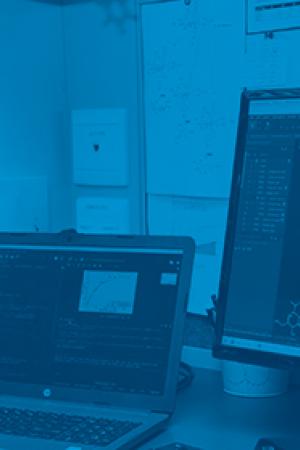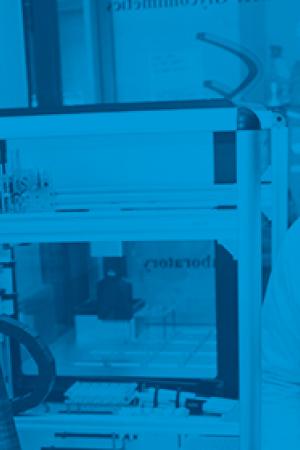Computing and data science together have long driven innovation in commerce and industry, yet science has been slow to embrace them. We believe that the rigour of computational models and the observational insights gained from data analytics are key to finding, testing, and developing innovative and practical solutions to respiratory infection and cancer.
Following this approach, we have built unique and practical computational tools that are able to discover the chemical changes behind respiratory infection and cancer and develop the models needed for the design of effective drugs.
These designs are then synthesised and tested in our Glycobiomedical Laboratory, where our informatics tools seamlessly link computational chemistry with computational biology on our own BRIDGE Galaxy platform and help to further refine the performance of these drugs.
Through this process, our machine learning and bioinformatic group developed an unsupervised learning method that led to the discovery of breast cancer biomarkers from gene expressions, and, in 2021, we lead a Phase 1 clinical trial on a breast cancer diagnostic discovered in our laboratories. We have also been awarded global patents for cancer biomarkers as well as local patents for a series of ricin inhibitors we developed.
Using computational experiments and models to drive therapeutics for cancer and respiratory infections has proven an excellent way to understand microbial and neoplastic diseases and produce solutions for them and allows us to take the lead in innovation in the field.
Research Laboratories

Computation & Modelling Laboratory

Glycobiomedical Science Laboratory

